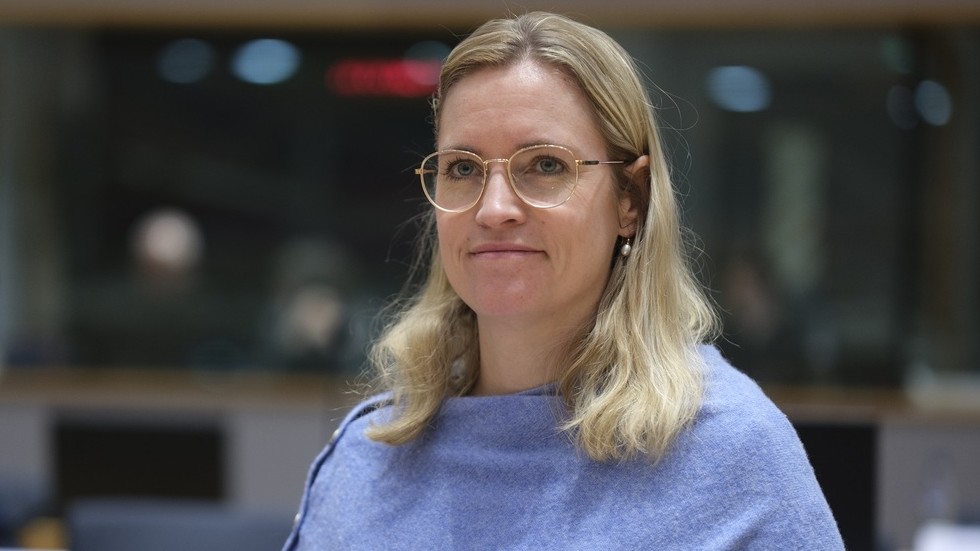Our guest's job did not exist until the current European Commission was formed. Now the college has a portfolio for "tech sovereignty, security and democracy" held by the Finnish Commissioner, Henna Virkkunen. We ask her what tech sovereignty means and how to boost it, amid an increasingly fraught tech relationship between the EU and the US administration of President Donald Trump. We also talk about the EU's overall strategy to increase innovation, research and the use of artificial intelligence.
"Freedom of speech is one of our fundamental values in the European Union," Virkkunen remarks. "But it's not as if freedom of speech is above all other rights. Other people have rights also. So we have to be balanced. So if there is, for example, illegal hate speech, it has to be taken down. It's also very important to explain this approach, because there's a lot of misunderstanding."
Pushing back on Trump's suggestions that the EU is treating US tech "unfairly", Virkkunen explains: "We have fresh statistics from the last eight months on why online platforms have been removing content, because under our Digital Services Act, they have to report in the European Union if they are removing content. And in 99 percent of cases they are doing that because the content is against their own terms and conditions. Only in 1 percent of cases was the removal based on trusted flaggers in the European Union."
The EU Commission is actively enforcing the Digital Services Act, and has opened new investigations. "We are specifically focusing on the protection of minors," Virkkunen says. "We have now opened investigations against adult platforms to make sure that they are protecting minors and that they have the age verification in place. Online shopping is also something where we are facing challenges."
As for enforcement of the Digital Markets Act (DMA), Virkkunen mentions the fines recently applied to Meta and Apple, over non-compliance. "Meta and Apple have 60 days to comply with our rules and change the design of their services. We are all the time looking at all the companies who are operating in the European markets, to make sure that they are complying with our rules," she states.
Virkkunen was recently in the US, where she met researchers and innovators. The commissioner says that she sees "a lot of interest towards the European Union, from students, researchers, industry startups and companies, because when there is so much uncertainty on the global scale, Europe is seen as a very reliable and stable and predictable place. Also, Europe is an ageing continent, and it’s very important for us to attract talented people from all over the world."
Virkkunen concedes that the EU is "often criticised for being too slow and bureaucratic. We want to make Europe faster and simpler and easier for businesses. We are looking at SMEs. We are implementing the AI (Artificial Intelligence) Act, and it’s important that we do that in an innovation-friendly manner. So if there are parts of the AI Act that overlap with other rules, we are looking at simplifying that also."
On startups, Virkkunen says: "This week we launched our startup and scale-up strategy, because we see that many companies have problems to scale up in the European Union. Often the challenge is access to finance, but we also have too many barriers between the member states. So we have to create one single market and use the full potential of the single market."
Virkkunen insists that the building blocks for growth in research and innovation in the EU are already in place. "We have 30 percent more researchers than the US per capita when it comes to AI," she asserts. "We have a very strong research and scientific community. We have 7,000 startups working to develop AI. But the infrastructure is a challenge in the European Union, in that we don't have enough computing capacity because we don't have these big tech giants. That's why, with our member states, we are investing in supercomputers. We have identified 13 so-called AI factories, and we have now opened a call for interest on so-called gigafactories. So we want to have very powerful supercomputers in the coming years to make sure that our startups can develop AI. We also want to encourage more AI uptake by the public sector and by industry."
-
Henna VIRKKUNEN Finnish MEP, European People's Party











 English (US) ·
English (US) ·